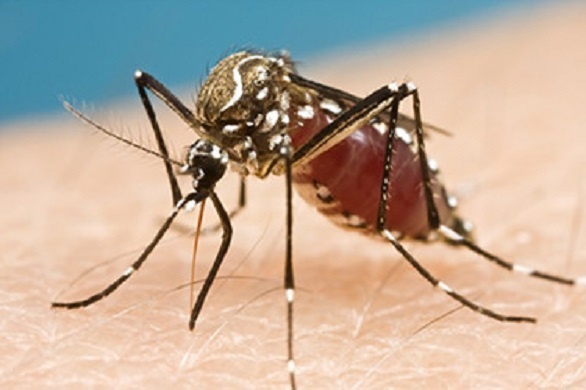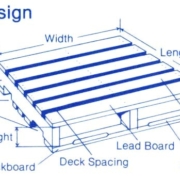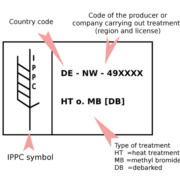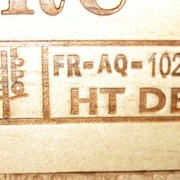Wood Pallets and ZIKA: Get the Facts
How Mosquitos Cross Borders
The spread of the Zika virus within the United States has changed the protocol for exporting shipments to other countries. However, this hasn’t changed the way wood pallets are prepared for export. As described in our previous post, the ISPM 15 requirements exist to prevent the spread of wood-boring insects across international borders. Mosquitos are not wood boring insects. The types of mosquitos that spread the Zika virus breed in pools of water. To prevent the spread of Zika, cargo containers and airplanes are subject to special treatment.
Chinese Regulations
China, in particular, is strict on this rule. According to the American Journal of Transportation, China’s fumigation requirement is effective for all shipments from the US after August 5, 2016. On September 2nd, they modified the requirement to apply only to shipments originating from Florida. Products being shipped don’t have to be exposed to the fumigation process if certain conditions are met. For instance, fumigating the empty container prior to loading the cargo into it is considered acceptable. Another method it to keep the temperature at 15 degrees Celsius or less during transit. Passenger and cargo airplanes must also comply with these regulations. The space in commercial airlines for storing baggage and in the passenger seating areas should be fumigated prior to departure. Airlines must supply proof of fumigation to the Chinese government.
Pallet Compliance
Wood pallet companies that supply pallets for export are not responsible for fumigating cargo containers. Pallet suppliers have no obligation beyond the ISPM 15 requirements to certify the lumber on their pallets has been heat treated. The ISPM 15 requirements pallet companies must follow are intended to prevent the spread of wood-boring insects that could harm forest sustainability. The National Wood Pallet and Container Association has been working closely with the U.S. Department of Agriculture (USDA) on this subject and had determined:
The ZIKA virus is a human health issue and is related to mosquitos, not wood-boring insects. Therefore, the recognized heat treatment or fumigation of export wood pallets for ISPM 15 compliance is not applicable for ZIKA compliance of the shipment. The entire consignment and container must be anti-mosquito treated and certified pre-shipment. There is no action a wood pallet company can do to assure ZIKA compliance for their customer’s shipment. It is the shipper’s responsibility to ensure the entire shipment is ZIKA compliant.
Inbound shipments without proof of anti-mosquito treatment will be fumigated at the port of discharge in China by the authorities without prior notice. It is the Consignee’s responsibility to inform Shipper (at origin) to provide a certificate proof of treatment before loading the shipment.
These regulations are in place to prevent the spread of Zika virus by mosquitos. The Zika virus was discovered in Uganda in 1947 and is common in Africa and Asia. According to the CDC, as of September 14, 2016, in the United States there have been 43 cases of locally acquired Zika and all of them occurred in Florida. Thus, only outgoing shipments originating from Florida going to China are subject to fumigation; however, these requirements are subject to change. As of September 14, 2016, there are 3,132 cases of US citizens who have contracted Zika by means associated with travel.












